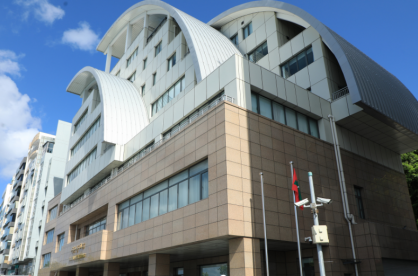Solih provides flat electricity rates amid second round of elections
The current electricity rate policies in the Maldives are consumption-based, meaning that the charges are directly linked to the amount of electricity used by consumers.

The current electricity rate policies in the Maldives are consumption-based, meaning that the charges are directly linked to the amount of electricity used by consumers.

Electricity bills, especially in tropical countries like the Maldives, can sometimes become a significant burden on residents due to escalating usage and fluctuating rates. In a bid to alleviate this concern, President Ibrahim Mohamed Solih has pledged to overhaul the country's electricity rate policies, ensuring that consumers are not burdened by fluctuating charges based on consumption.
President Solih made this commitment while inaugurating a new campaign hub for the Maldivian Democratic Party (MDP) on the evening of September 21. During his address, he highlighted the rising prices of essential necessities as a major concern among the country's residents. While these concerns include a number of issues, one notable cost that residents keep printing up is that cost of electricity in the country.
The current electricity rate policies in the Maldives are consumption-based, meaning that the charges are directly linked to the amount of electricity used by consumers. President Solih aims to rectify this by implementing a flat-rate system for all local residences, regardless of their electricity usage. This move is designed to provide relief to consumers and equalize the electricity tariff for all households.
One of the key factors contributing to the rising electricity rates in the Maldives has been the existing policy framework, which ties charges to consumption. This approach has resulted in higher bills for those who use more electricity, often leaving residents with hefty expenses, particularly in a tropical climate where air conditioning and cooling systems are vital for comfort. Many residents find themselves facing this issue, especially during celebratory months like Ramadan, where households are more prone to higher consumption of electricity due to the usage of utilities such as the oven, which is not used as often through out the year. In addition to this, during months where the Maldives faces heat-waves, residents are faced with the burden of paying a high bill in the coming month as well.
Additionally, the inflation in power output equipment and facilities has also played a role in driving up electricity costs. By transitioning to fixed rates, the government aims to mitigate these challenges and provide relief to households facing financial strain due to unpredictable electricity bills.
While the move towards having a fixed electricity rate is a promise that the President is making, if this is implemented residents of the Maldives would be looking at more predictable electricity bills. With this, issues regarding extremely unaffordable electricity bills, especially around the month of Ramadan might finally come to an end.



